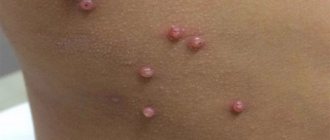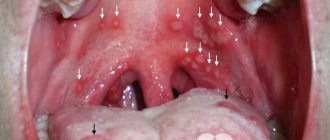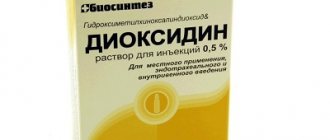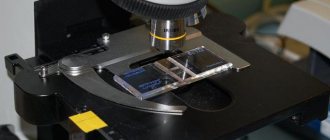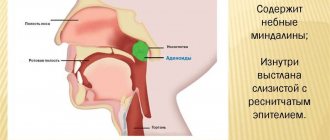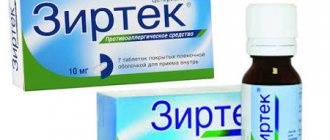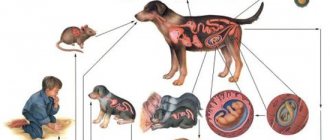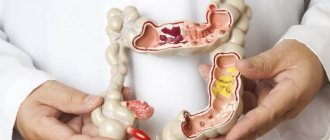When hiccups start, all the tips and treatment methods are immediately remembered in order to get rid of it as quickly as possible. It's an unpleasant feeling. It’s good if hiccups suddenly appeared and also passed fleetingly, causing only temporary discomfort. But there are often cases when a person hiccups for quite a long time. There are also many examples in medicine where hiccups indicated a serious malfunction in the body’s functioning and signaled a deadly disease, for example, a micro-infarction. So, let's figure out why people hiccup, what it might be connected with, and how to eliminate this problem.
How is everything going?
Hiccups occur unexpectedly. This occurs due to the fact that the large muscle, which is located near the stomach, is in a state of spasm. The muscle is called the diaphragm. It helps a person breathe normally. If the diaphragm works correctly, then its stroke has a clear and constant rhythm. Any disruption in the functioning of the diaphragm leads to disruption in the respiratory system.
Once the diaphragm fails, the entire body begins to react and try to restore normal functioning. When the diaphragm malfunctions, a person begins to inhale more air than usual. The lungs filled with air give a signal to the brain that breathing problems have begun, and it, as befits the most important leader of the human body, gives an order to the larynx to intervene in this disgrace and improve its functioning. The larynx, having received clear instructions from the brain, immediately begins to close the vocal cords. And here the struggle between the larynx and diaphragm begins. The large muscle tries to provoke the person to take in as much air as possible, but the ligaments block this desire, and the larynx does not allow air to enter the lungs. And it is precisely at this moment of struggle that that very unpleasant hiccup is born. Here is the answer to the question of why people hiccup. The diaphragm, encountering a barrier established by the vocal cords, produces a sound that we all call hiccups.
Urgently see a doctor?
Is hiccups a disease or a temporary phenomenon? Does it require close monitoring and urgent medical intervention? Or maybe you shouldn’t pay attention to it at all? We ask ourselves all these questions at the very moment when hiccups once again declared their existence.
In fact, hiccups are an absolutely normal reaction of the body. If it is not accompanied by pain, it is intermittent and short-lived. But there are often people for whom hiccups are a serious problem. It begins, like everyone else, suddenly. But sometimes it lasts for several days or even a week. Hiccups do not allow a person to exist normally and enjoy life. Such people are in constant tension and do not rest. And they need medical attention to get rid of the harmful hiccups. What is the reason why people hiccup?
What is the reason?
Scientists and doctors, studying this problem, have identified a possible reason why people hiccup. It turns out it's all about calcium and blood pressure. According to researchers, hiccups occur when a lot of calcium enters the brain. Patients with hiccups, under the supervision of doctors, were prescribed to take drugs that block the entry of calcium into the brain tissue. 80% of patients under observation were cured.
How to get rid of hiccups yourself?
It is impossible to control hiccups. No matter what the hiccupper does, no matter what method of expelling this very hiccup he tries, the unpleasant “hic!” still reminds me of myself.
Knowing why people hiccup, you can help yourself get rid of unpleasant sensations without doctors and all sorts of powders and medicines for hiccups. There are several traditional methods. Try holding your breath for a while. Did not help? Then drink some water. By the way, you need to drink water in a special way: by rotating the glass in a circle, drink without stopping, as if in one breath. If a small infant hiccups frequently, then neither water nor stopping breathing will help him. The reason is that the baby swallowed air during feeding with milk. After eating, the mother should hold the baby upright until the air comes out.
In general, although hiccups appear unexpectedly, they also go away unexpectedly. Wait a bit. The body is able to cope with it on its own. He knows how to effectively deal with hiccups.
Why does a person get hiccups at one time or another? This is a question that almost every person asks sooner or later. Hiccups refer to the process by which the body tries to get rid of the stress of the vagus nerve. The vagus nerve plays a very important role in the human body. It connects many internal organs with the central nervous system.
Hiccups occur due to irritation of the diaphragm. At this moment, it begins to move sharply, which causes a large flow of air to enter the throat. It enters the vocal cords and produces a peculiar sound.
This unpleasant phenomenon can be caused by both completely harmless factors and very serious diseases. That is why, if hiccups appear too often, you should definitely make an appointment with a doctor.
Causes of hiccups that are not related to a painful condition
It is important to find out what causes hiccups. Often the person himself is to blame for the phenomenon described above. So, attacks of hiccups occur for the following reasons:
- Hasty food. If a person is used to eating quickly, then sooner or later he will begin to complain that he has hiccups. When eating in a hurry, quite large pieces of food pass through the esophagus. This causes injury and irritation to the vagus nerve.
- Binge eating. Too much food causes the stomach to bloat. The swollen organ touches the diaphragm and causes irritation. This is why experts advise eating in moderation. In addition, this will have a positive effect on your figure.
- Eating in an awkward position is a common cause of hiccups. In an awkward position, the nerve is compressed, which causes the characteristic sound to appear. You only need to eat while sitting and at the table.
- If you don’t want to hiccup a lot, then you shouldn’t eat dry food. The same can be said about taking too hot or cold food and drink.
- Often this phenomenon appears at a moment of fright, when a person takes a sharp breath.
- In children, hiccups occur due to hypothermia.
- Abuse of carbonated drinks is another reason for the above-described phenomenon. It is especially harmful to drink spicy or fatty foods with fizzy drinks.
- Alcohol abuse often causes hiccups.
- Hiccups in humans can occur due to minor injury to the vagus nerve. Convulsive contraction of the diaphragm allows the body to get rid of microtrauma, which causes a nervous tic.
- Hiccups in the fetus may occur due to the ingestion of a large amount of amniotic fluid or a sudden change in the mother’s mood.
- In newborns, this phenomenon occurs quite often and does not pose a serious threat to their health. Characteristic sounds may appear due to the fact that the baby swallowed a lot of air while eating.
Due to the modern education system, which greatly overloads the psyche of children, modern schoolchildren spend too little time in the fresh air. Nervous stress, lack of physical activity and fresh air can lead to the above-described phenomenon. In this case, hiccups appear on especially difficult and overloaded days. You can get rid of it if you relax and walk outside for a while.
What are the causes of short-term hiccups?
There are many, and there is no definitive list of triggers. Moreover, sometimes hiccups appear and disappear for no apparent reason.
Possible causes of short bouts of hiccups
- binge eating
- eating spicy food
- alcohol consumption
- carbonated drinks
- eating very hot or very cold foods
- sudden change in air temperature
- swallowing air while chewing gum
- excitement or emotional stress
- aerophagia (increased swallowing of air when eating)
Possibility of diseases
Ordinary hiccups go away quite quickly. As a rule, 5-15 minutes is enough. If the characteristic sounds do not stop for more than 48 hours, then this is a clear reason to consult a doctor. In this case, there is a high risk of developing a serious disease.
- Hypermotor dyskinesia. Gastric juice aggressively affects the esophageal mucosa, after which hiccups appear. Hypermotor dyskinesia is characterized by unpleasant symptoms such as hiccups, heartburn, coughing and neck muscle tension.
- Hiatal hernia is another reason why hiccups are observed. It usually occurs during eating or after changing posture. Sometimes this symptom is accompanied by mild pain in the abdomen and behind the sternum. A hernia causes displacement of internal organs, which often results in tachycardia and shortness of breath.
- Impaired lung function - when diagnosed with such disorders, patients often hiccup, their hair begins to fall out, drowsiness appears and the desire to constantly yawn. Sometimes from lunch to 18 o'clock an increase in body temperature may be observed.
- Cervicothoracic radiculitis - in this case, the roots of the spinal cord are affected. With this disease, the tone of the diaphragm greatly increases, which leads to a downward displacement of the liver. This causes prolonged hiccups. The patient has an unpleasant sensation, as if a lump has formed in his throat.
- Damage to the central nervous system—disruption of the central nervous system may result from a tumor, injury, or infection.
What can cause chronic hiccups when the central nervous system is damaged? Most often, the cause of this unpleasant phenomenon is serious illnesses of the central nervous system - meningitis, multiple sclerosis, stroke and encephalitis.
Other common causes of an unpleasant phenomenon
Chemotherapy can also cause frequent hiccups. Cancer patients who have already undergone several stages of chemotherapy complain of characteristic sounds that arise due to the effect on the body of a large number of powerful medications. Very often, attacks of hiccups appear after taking Dexamethasone. Initially, the patient suffers from nausea, muscle weakness and vomiting, after which hiccups appear.
The risk of hiccups increases with surgery and anesthesia. During surgery, a specialist inserts breathing tubes into the trachea and displaces the internal organs. This increases the risk of a characteristic sound several times.
What happens after abdominal surgery? The answer to this question is still the same - severe hiccups appear. This is due to the accumulation of air and gases in the internal cavities.
Attacks of hiccups are familiar to many smokers. The thing is that nicotine entering the body when smoking has a very negative effect on all internal organs. The vagus nerve is no exception.
Necessary tips
If the cause of hiccups is any serious illness, then first of all it is necessary to cure the disease itself. This will require taking medications. Only a qualified specialist can prescribe a course of treatment.
In other cases, you can try to get rid of the characteristic sound yourself. To do this, you just need to follow a few important rules:
- Take a deep breath and hold your breath for as long as possible.
- You can try switching to less intense breathing. You should begin to exhale and inhale the air slowly, making sure to take intervals.
- You should stick your tongue out as far as possible.
- If hiccups occur frequently, you can deal with them by sitting for a while with your knees pressed to your chest.
Folk remedies
You can cope with hiccups using traditional medicine. Home remedies can help get rid of the characteristic sound quickly. It is very important to choose the right folk medicine.
You can apply a cold compress to your throat. Several pieces of ice should be wrapped in a plastic bag and a towel. The breathing valve will prevent hiccups from continuing.
You can try putting a mustard plaster on top of your stomach.
Dilute 1 tsp in half a glass of water. vinegar 9%. All liquid must be drunk in one gulp. As a rule, the hiccups go away within a few minutes.
If hiccups appear, many who are faced with this problem are concerned about the question of why it appeared and whether it is possible to get rid of it with the help of tincture of birch buds. In fact, when hiccups appear, birch buds infused with alcohol give good results. To prepare a useful product, 15 g of kidneys must be kept in 200 ml of alcohol for 10 days (in a dark place). The finished tincture should be strained and drunk 15 drops when hiccups appear. The medicine must be diluted in clean water.
A few bay leaves should be mixed with the same amount of cherry leaves and pour half a liter of boiling water. Leave the mixture for several hours. The finished tincture must be filtered and taken orally 15 drops when an attack occurs.
What is hiccups and why does it appear? Only an experienced specialist can answer this question. Doctors do not recommend self-medication if frequent hiccups occur. The best solution is to make an appointment with a specialist as soon as possible.
Each of us has experienced an unexpected attack of hiccups at least once in our lives. Annoying, convulsive contractions of the diaphragm occur involuntarily, giving a person very unpleasant sensations.
And getting rid of hiccups that have started is often not so easy. In this article we will talk about the causes of this phenomenon, and also describe popular methods for eliminating hiccups.
Medicines against hiccups
As a rule, such an ailment usually goes away on its own within a few minutes after its occurrence. However, incessant hiccups may be the result of some more serious disease that requires immediate medical intervention. Only a specialist doctor can prescribe medications after examination, when the picture of the pathology is completely clear. Here are just the main drugs that help fight hiccups:
- “Ranitidine” or “Omeprazole” are drugs aimed at regulating the acid balance in the stomach and reducing the amount of gases in it;
- “Haloperidol” or “Aminazine” are medications that are prescribed to relax muscles (including the diaphragm);
- “Gabapentin” is a kind of respiratory stabilizer that eliminates the feeling of suffocation and shortness of breath (prescribed even for bronchial asthma);
- “Ketamine” is a pain medication that is usually used as an adjuvant treatment;
- “Sedafiton” – tablets against nervous tension (prescribed for mental illnesses, for example, depressive syndrome).
It is worth noting that for complex treatment several drugs can be prescribed at once, the task of each of which is to overcome a specific ailment. Of course, all medications must be taken strictly according to the instructions or on the recommendation of a specialist. Needless to say, only a qualified doctor can prescribe the drug to a child. Remember that self-medication often leads to a deterioration in well-being, especially when it comes to children.
Causes of hiccups
Everyone has encountered hiccups...
Most often, bouts of hiccups are not a symptom of any disease. The cause of this unpleasant phenomenon in healthy people may be:
- Quick meal. When swallowed hastily, the food is poorly crushed, chewed and moistened with saliva. Therefore, large and coarse fragments of it enter the esophagus. They are able to influence the vagus nerve, when irritated or injured, hiccups begin.
- Binge eating. Eating too much food causes the stomach walls to stretch. The stretched organ begins to put pressure on the diaphragm, irritating it.
- Eating in the wrong position. This leads to compression of the nerve, which contributes to the appearance of the unpleasant "hic". You should only eat while sitting at the table.
- Dry food.
- Drinking too hot or cold drinks and foods.
- Excessive consumption of alcoholic and carbonated drinks.
- Fright (if at the moment of its occurrence, the person sharply inhaled air).
Hiccups are considered a normal occurrence in fetal life. It appears when the baby swallows a large amount of amniotic fluid, as well as when the mother’s mood unexpectedly changes.
Hiccup attacks often occur in children. They are caused by hypothermia or swallowing excess air when drinking, eating or laughing loudly.
In all the cases described above, hiccups are not a sign of any pathology, and therefore do not require medical intervention.
The following video will introduce you to the causes of hiccups:
How do hiccups occur?
Photo: derneuemann/pixabay.com
When we hiccup, our diaphragm and intercostal muscles involuntarily contract. At this moment we inhale sharply - we get the sound “and”. Then the laryngeal fissure closes, and that same “hic” comes out.
Scientists believe that hiccups can be caused by irritation in any of the internal organs: stomach, intestines, spleen, liver, lungs or kidneys. This is explained by the fact that they are all connected to the diaphragm by the so-called reflex chain of the vagus and phrenic nerves. And most often it is the stomach that becomes the “hero of the occasion” - after all, it is located directly under the diaphragm. If the stomach is full of food or gas, the vagus or phrenic nerves become excited and cause an attack of hiccups. And the risks are especially high if carbonated mineral water or ordinary sweet soda is in the stomach.
But in fact, an attack can occur from any action that irritates your digestive organs and respiratory tract. Spicy foods, eating too quickly, smoking, drinking alcohol, taking medications, laughing loudly and even shaving your neck can all make you hiccup for hours. In addition, hiccups can haunt you due to stress, anxiety, lack of sleep, micronutrient deficiency or poor posture. Less commonly, it occurs due to pneumonia, tumors in the brain, stomach or lungs, diabetes, Parkinson's disease and multiple sclerosis.
The appearance of hiccups in various diseases
But hiccups that occur are not always considered a harmless phenomenon. Prolonged hiccups can be one of the symptoms of serious illnesses. These include:
- Increased contractile activity of the stomach walls. This disruption of the organ results in the contents of the stomach entering the esophagus, irritating it. The disease is also accompanied by heartburn, a slight cough and increased tone of the neck muscles.
- Diaphragmatic hernia. The presence of a hole or protrusion in the diaphragm leads to a displacement of the position of the internal organs. Therefore, hiccups may occur when taking an uncomfortable body position or after eating. With this disease, unpleasant painful sensations may appear in the sternum, abdomen, as well as shortness of breath and increased heart rate.
- Pathologies of the respiratory system.
- Radiculitis of the cervicothoracic spine. With this disease, the roots of the spinal nerves are damaged, hypertonicity of the diaphragm muscles occurs, and the liver moves lower. An attack of prolonged hiccups is accompanied by unpleasant sensations in the throat.
- Malfunctions of the central nervous system caused by injury, viral infection, tumor.
- Prolonged hiccups can be a consequence of stroke, sclerosis, or meningitis.
- Increased intracranial pressure.
- Diseases of the digestive system: gastritis, ulcers, gallbladder dysfunction, etc.
- Malignant tumors affecting the respiratory and gastrointestinal tract.
Thus, frequent and prolonged bouts of hiccups may indicate the development of a serious disease. In such cases, you should immediately undergo examination by a specialist to identify the causes of the unpleasant phenomenon and eliminate them.
Hiccup, hiccup, go to Fedot
Author Natalya Sukhareva
Updated: 10/23/2019 14:17 Published: 05/08/2019 14:17
Health » Health and prevention
Who doesn't know hiccups? The phenomenon is unpleasant, but usually short-lived and does not occur often. And harmless.
3 shared
But all this is true only if we are talking about ordinary hiccups. There is also pathological hiccups, which indicate health problems.
What are we talking about?
What are hiccups? Hiccups are an involuntary spasmodic contraction of the diaphragm that closes the vocal cords. A similar condition occurs when the normal breathing rhythm is disrupted. In this case, the diaphragm contracts and air passes into the lungs, while the glottis is already closed. The result will be sounds called hiccups.
An attack of hiccups can be isolated and short-lived, or it can be regular and last for hours or even days.
Ways to get rid of hiccups
Relaxation is a method of getting rid of hiccups
As a rule, hiccups occur unexpectedly. And our desire to get rid of it alone is not enough, since the annoying “hic” appears and disappears regardless of a person’s will.
But still, in some situations, with the help of simple manipulations it is possible to stop hiccups. To do this you need:
- Eliminate vagus nerve irritants.
- Relax the diaphragmatic muscles.
- Switch your attention to another object.
- Influence the respiratory centers in the brain.
There is an opinion that you can quickly stop hiccups that have started only before a person has hiccupped ten times. Otherwise, you will have to irritate yourself and those around you with the sounds accompanying this process for some time. Let's look at popular ways to combat hiccups.
Quick relief from hiccups
To eliminate an unpleasant symptom, you should stop irritating the vagus nerve, relax the diaphragm, switch your attention, calm down and stimulate the respiratory center.
Among the proven methods, the most effective are:
Breathing exercises
They are aimed at increasing the level of carbon dioxide in the blood and thereby stimulating the activity of the respiratory center. Thanks to various methods, it is easier to control breathing acts and also to calm down:
- The spasms will go away if you breathe frequently for a minute.
- The reflex will be inhibited if you blow up balloons, blow soap bubbles, or breathe through a paper bag.
- Valsava's maneuver. Take deep breaths and hold your breath. To enhance the effect, perform any exercises while counting to 10, for example, bending or jumping. Combine tension in the abdominal muscles with slow exhalation.
Proper breathing and physical activity will get rid of hiccups. The method is contraindicated:
- pregnant women;
- patients who have undergone surgery;
- people suffering from cholelithiasis, diseases of the cardiovascular and musculoskeletal systems.
Gymnastic exercises have a special effect:
- tightening abdominal muscles;
- push-ups from any surface;
- stand position on elbows and knees;
- "birch";
- pull-up on the bar.
Drinking water
The method allows you to distract yourself and calm the vagus nerve:
- It is better to hold your breath while drinking chilled water, counting the number of sips.
- When drinking water, tilt your torso forward to tighten your abdominal muscles.
- To switch your attention, drink water:
- from the glass, while turning it to the right;
- with a pencil in his teeth;
- having previously thrown an object into the glass.
Irritation of taste buds
The method helps to shift attention and concentrate on performing other important functions. Relieves “nervous” hiccups, as well as those that develop when exposed to cold or impaired digestion.
Methods:
- Apply a little mustard to your tongue.
- Eat a slice of lemon, 1 tsp. honey or take a vitamin C tablet.
- Dissolve 1 tsp. salt or sugar.
- Eat any product that is unusual for you.
Simple methods to get rid of hiccups
To relieve an attack you can:
- Tickle your heels.
- Induce vomiting.
- Hold for several minutes with your mouth wide open and tongue hanging out.
- Read any tongue twister.
- Take a warm bath or shower.
- Swallow a crust of bread or a piece of ice.
- Press on biologically active points located on the earlobes, the cavity between the chest bone and collarbones, and on closed eyelids.
- Pretend thunderous applause or massage the backs of your hands.
- Argue with someone who hiccups for money.
- Massage the anus.
- Have sex or kiss.
Breathing exercises
In children, hiccups may be due to hypothermia
Various breathing exercises are effective ways to eliminate the onset of an attack of hiccups. They are aimed at increasing the concentration of carbon dioxide in the blood, which helps to activate the respiratory centers of the brain.
They also relieve irritation from the vagus nerve. Let's describe the most popular breathing exercises.
- Holding your breath. You should take several deep breaths and hold your breath as you exhale for ten seconds.
- You need to exhale slowly. A more effective result can be achieved if, while performing the exercise, you perform simple physical actions (jumping, bending), straining your abdominal muscles, and counting slowly.
- Rapid breathing for 60 seconds.
- Blowing a balloon or soap bubbles.
- Breathing through a paper bag.
- Drinking water
Water helps relieve irritation from the receptors and relax the diaphragm muscles. In order to stop hiccups, you should:
- While holding your breath, drink ten small sips of water at room temperature.
- Place an object in a glass of water and, while drinking, be careful not to get it into your mouth.
- Place a glass of water on the table. Bend your body forward and slowly drink some water.
- Irritation of taste buds.
This method helps to distract from hiccups, switching the body to perform other duties. The method is effective for hypothermia, anxiety, and indigestion. To get rid of hiccups you need to:
- Dissolve a piece of sugar.
- Eat mint candy, ascorbic acid, a spoonful of honey or a slice of lemon.
- Put a little mustard on your tongue.
- Distraction exercises.
Various physical exercises combined with proper breathing help relax the muscles of the diaphragm, remove excess air from the digestive system, and activate the respiratory centers of the brain, thereby eliminating the onset of hiccups. Distractive exercises include abdominal swings, pull-ups, push-ups, and various racks.
It should be remembered that this method is contraindicated for people suffering from diseases of the cardiovascular, digestive, musculoskeletal systems, pregnant women and some other situations.
How to get rid of hiccups
However, whatever causes hiccups, it can be stopped with simple methods.
Most ways to quickly stop respiratory spasms serve one of two purposes. Hiccups: a common problem with some unusual causes and cures:
- Increase carbon dioxide concentration Why Do You Get Hiccups? (And How to Stop Them) in the lungs and blood. Feeling the threat of suffocation, the body quickly comes to its senses and normalizes the functioning of the diaphragm.
- Stimulate the vagus nerve. It connects the brain and digestive system and is also involved in the breathing process. Stimulation causes the brain to switch to new sensations and stop transmitting incorrect signals to the diaphragm.
Choose any option you like. And move on to another if the previous one didn’t work.
Hold your breath
Take a deep breath and hold it for 10–20 seconds. Then exhale slowly. Repeat if necessary.
Breathe into a paper bag
Take a small paper (not plastic!) bag and cover your nose and mouth with it. Exhale and inhale slowly so that the bag inflates and deflates. Continue for 15 seconds.
Breathe slowly
Inhale deeply, counting to five, and exhale in the same way. Do 5-7 reps.
Hug your knees
Find a place where you can sit comfortably and raise your knees to chest level. Wrap your arms around your legs and try to press them closer to your body while leaning forward Hiccups. Sit in this position for 20–30 seconds.
Drink a glass of cold water
Do it quickly. To stimulate the vagus nerve even more effectively, you can drink through a straw, plug your fingers into your ears, press on your closed eyes, or squeeze the wings of your nose.
Suck on an ice cube
Dissolve it for a few minutes. And swallow when it reduces to small sizes.
Eat something with a strong taste
For example, a slice of lemon or tomato generously seasoned with vinegar.
Try to induce a gag reflex
This can be done by pressing the Hiccup with your fingers or a spoon onto the base (root) of the tongue. The inevitable spasm of the esophagus will stop the contractions of the diaphragm.
Stick your tongue out as far as you can
To be sure, use your fingers to pull it out and down. This will also put pressure on the root of the tongue and provoke a spasm of the esophagus.
Put sugar on your tongue
Approximately a teaspoon, trying to place the crystals as close to the root of the tongue as possible. Allow the sand to dissolve or do not swallow for at least 5-10 seconds.
Inhale something with a strong smell
Ammonia or ammonia will do.
Massage the carotid artery
It runs on both sides of the neck. This is the paired artery that you press with your fingers when you try to feel the pulse under the lower jaw.
Lie on your back, turn your head to the left How to Get Rid of Hiccups and massage the artery on the right side in a circular motion for 5-10 seconds.
Give a rectal massage
Simply place your finger in the anus. This non-standard method was discovered by doctors at the Bnei Zion Medical Center (Haifa, Israel). This is how they stopped Termination of Intractable Hiccups With Digital Rectal Massage persistent hiccups in a 60-year-old patient.
In 2006, doctors were even awarded the 2006 Ig Nobel Prize Winners for their discovery.
Have sex
Francis Fesmire, the doctor who published the first study on the benefits of rectal massage, later said that he would have recommended sex instead of a finger in the anus.
Orgasm results in incredible stimulation of the vagus nerve. From now on, I will recommend sex as a cure for intractable hiccups. Ig Nobel prizes hail 'digital rectal massage'.
Francis M. Fesmire, emergency medicine specialist, comments to New Scientist
Take a break
Often, to get rid of hiccups, it is enough to stop concentrating on it. How to Get Rid of Hiccups. Take a Chinese or English lesson in an online trainer, complete a crossword puzzle, or try to calculate 112 ÷ 4 × 2.5 in your head.
Traditional methods
A glass of water will help get rid of hiccups
There are also many traditional methods for getting rid of hiccups. Here are some of them:
- Scare or tickle a hiccupping person.
- Say a tongue twister or sing a song.
- Apply a little pressure on the root of the tongue, causing a gag reflex.
- Extend your tongue and hold its tip a little.
- Fill a bath with warm water and lie in it.
- Taking medications
With frequent, prolonged attacks of hiccups, as mentioned above, you must immediately seek help from a specialist. Only a doctor will be able to find out the true cause of the unpleasant phenomenon and choose the right treatment.
Indications for prescribing medications are:
- frequently recurring attacks;
- hiccups that do not stop throughout the day;
- hiccups, which is a symptom of the disease;
- hiccups, accompanied by heartburn and pain in the esophagus.
Thus, hiccups can occur for various reasons. This phenomenon does not pose a threat to human health. In most cases, healthy people begin to hiccup when they are hypothermic or eat in a hurry. But in some situations, prolonged and prolonged hiccups may indicate the development of a serious illness.
Hiccups are intense, involuntary, stereotypically repeated short intense respiratory movements when the glottis is completely closed or narrowed. When we hear a strangled sound, this is a consequence of the closing of the gap.
How to get rid of hiccups at home?
If for some reason you cannot visit the clinic, and you don’t really want to endure hiccups, you can use special techniques that should help cope with the disease. In the list below you will find a detailed description of each of them:
- Drink plenty of cold water. The most common and most effective way to deal with constant hiccups. To implement it, you will need to drink cold water for several minutes. Lower temperatures will calm the vagus nerve and cause the diaphragm muscles to return to normal.
- Consumption of sugar and salt. If you mix a few sweet and salty grains and then begin to dissolve them in your mouth, this can help get rid of hiccups. Different tastes strongly irritate the nerve receptors, as a result of which the vagus nerve calms down, and the hiccups go away in a matter of minutes.
- Activation of reflex zones. This “old-fashioned” method helps to cope with symptoms that arise against the background of various psychological disorders. It will be enough to touch a hot kettle or watch a horror movie. If the nervous system focuses on reflexes, the hiccups will quickly pass.
However, not in all cases an unpleasant symptom occurs due to the presence of the vagus nerve in the body. Sometimes the cause of hiccups is a banal violation of respiratory functions. Special breathing exercises will help you cope with the symptoms:
- alternating deep breaths and holding air;
- intensive inflation of a balloon or paper bag;
- slowly exhale (5 seconds) a large volume of air;
- lifting the body as you exhale (swinging the press);
- even breathing with hand pressure on the chest.
If none of the above methods help, try taking radical measures - induce a gag reflex. This procedure will get rid of excess air in the stomach, prevent intoxication in case of poisoning, concentrate the attention of the nervous system on the reflex and relax the diaphragm.
Etiology of hiccups
When a person periodically hiccups, it causes short-term inconvenience. But if the process takes a long time and often at an intense pace, the violation complicates existence and negatively affects the quality of life. Let's look at what causes hiccups to form.
The signals for the occurrence of hiccups are divided into four types.
Caused by physiological factors:
- the body is hypothermic - when the body suddenly cools down, a person begins to hiccup;
- incorrect body position when eating, during sleep (body bending, intense bending);
- a full stomach (overeating puts pressure on the diaphragm, causing contractions);
- fright;
- late pregnancy (the fetus puts pressure on the respiratory muscle area - involuntary contractions begin, hiccups occur).
Caused by hepatotoxic effects of substances or factors:
- ingestion of toxic substances into the body (anesthesia, substances included in medications, for example, Dexamethasone, which has a lot of side effects, including hiccups, hormonal drugs, sleeping pills Thiopental, a group of drugs that affect the human GNI Phenazepam, etc.);
- alcohol is the cause of this symptom with repeated constant use (toxins negatively affect the azygos muscle);
- intoxication with toxic substances (arsenic, carbon monoxide).
Pathological changes in the functioning of nerve structures:
- stressful, hysterical states;
- damage to the central nervous system by cancer cells (benign tumors);
- neurological disorders (cerebral hemorrhages, encephalitis, epilepsy, Parkinson's disease, etc.).
Which are indirect manifestations of diseases:
- disorders of the peripheral and central nervous system - epilepsy;
- skull injuries;
- syphilitic damage to the brain and spinal cord;
- inflammation of the membranes of the brain; dropsy; vascular aneurysms in the central nervous system, etc.;
- a galaxy of diseases under the influence of which the own immune system destroys cells and organs - lupus erythematosus; sclerosis; Besnier's disease; neuromyelitis optica;
- gastritis; pathologies of the biliary tract; ulcerative colitis; intestinal obstruction; inflammatory process in segments of the digestive system, etc.; Intestinal obstruction
- disorders in the chest organs (cysts; tumors; bronchitis, trauma; aortic aneurysm; pneumonia; goiter, etc.);
- disorders of lymphoid tissues and organs;
- endocrine diseases associated with impaired glucose absorption (diabetes);
- alcoholism.
Types of hiccups
They are divided into types, depending on the duration of the disease:
- Short-term – occurs 1-2 times per day, disappears within 20 minutes.
- Persistent – from one hour to 48 hours. Defined as persistent.
- Unstoppable – 30-60 days. If it does not stop after two months, it is considered persistent and lasts forever.
Episodic has physiological origins. The other two forms have pathological causes of appearance.
How to eliminate an unpleasant symptom?
The answer to the question of how to get rid of hiccups lies in the causes of their occurrence. An adult, having undergone an examination, if it is not possible to independently detect the etiological factors of the ailment, must find out why hiccups occur.
Physiological hiccups
Hiccups caused by physiological signals, according to doctors, are the body pushing out excess air formed in the stomach.
Air in the stomach
In this case, it is easy to stop short, intense respiratory movements - you just need to eliminate the factor that caused the appearance: get rid of hypothermia, remove carbonated drinks from the diet, change body position, etc. Does not require medical intervention.
The illness is not pleasant; sometimes we hiccup when the phenomenon is inappropriate, for example, at a meeting or meeting. Intense sudden muscle contractions, although not so painful, cause discomfort and embarrassment. Therefore, people are trying to find methods to immediately eliminate involuntary contractions of the diaphragm.
Elimination techniques at home:
- Drinking boiled water is a popular method that combines three methods: drink a glass of water in tiny sips; drink half a glass in a bent position; Drink fluids while doing physical exercise.
- Hold your breath for 10-20 seconds.
- Eat a bitter or sour product (stimulation of taste buds causes irritation of the peripheral parts of the human nervous system). This switches the body - the vagus nerve innervating the abdominal cavity is not excited, the hiccups stop, since the cause is eliminated.
- Suppression of reflex contractions by irritating receptors in the pharynx. Touch the sky with two or three fingers and hold in this position until you feel that the hiccups have stopped.
- Ask someone to scare you. Unexpected fear is an additional way to combat an undesirable condition in a hiccupping person. This is due to the switching of the dominant focus of the central nervous system and the formation of a focus of excitation in another place.
- A piece of sugar placed on the tongue is swallowed by a hiccupping person.
What else makes a troublesome synonym disappear? We will describe methods that are used less often. Residents of one state in the USA treat hiccups in babies this way - they tie 2 fabric strips around the circumference of the head, one on the bridge of the nose, and the other on the forehead, and between them there is a bright thread. The bright color attracts the child's attention, the baby stops hiccupping.
Gymnastic exercises (squats, bends) distract the attention of the nervous system. Physical activity improves blood circulation, corrects breathing, and optimizes metabolism in the body. So, to stop hiccups after overeating, it is wise to use this method.
When tickled, breathing is reflexively held, and within seconds the hiccupping person’s spasms disappear.
Stick out your tongue far and support it with your fingertips for 1 minute - the American president once, according to legend, used the described method.
Pathological hiccups
Pathological hiccups are divided into three types:
- Central (mediated by lesions of the central nervous system).
- Peripheral (present in diseases that affect or irritate the trigeminal nerve).
- Toxic.
The pathological nature of the disease is characterized by relapses. This exhausts the body of a person suffering from prolonged hiccups and brings changes in the psychological state. It will not be possible to eliminate it on your own - a thorough examination is required to determine the etiology and mechanisms of the disease. If the phenomenon was brief and there was no recurrence of hiccups, there is no cause for concern. But if this lasts for 1-3 days, it means that fundamental health changes have developed, it is advisable to immediately contact a medical facility.

